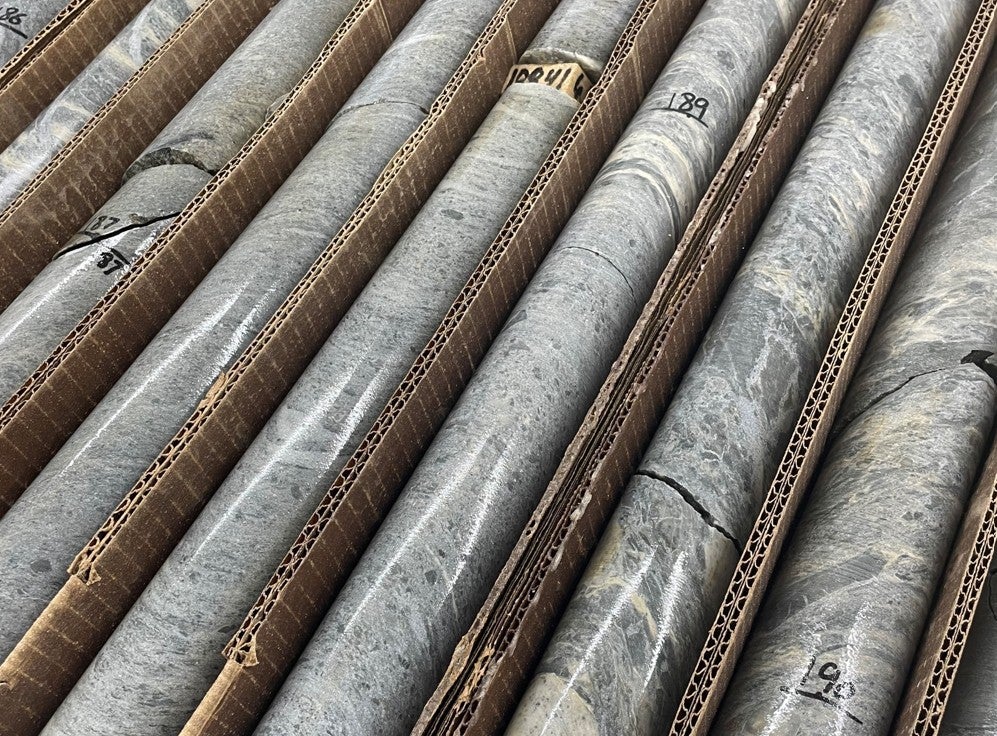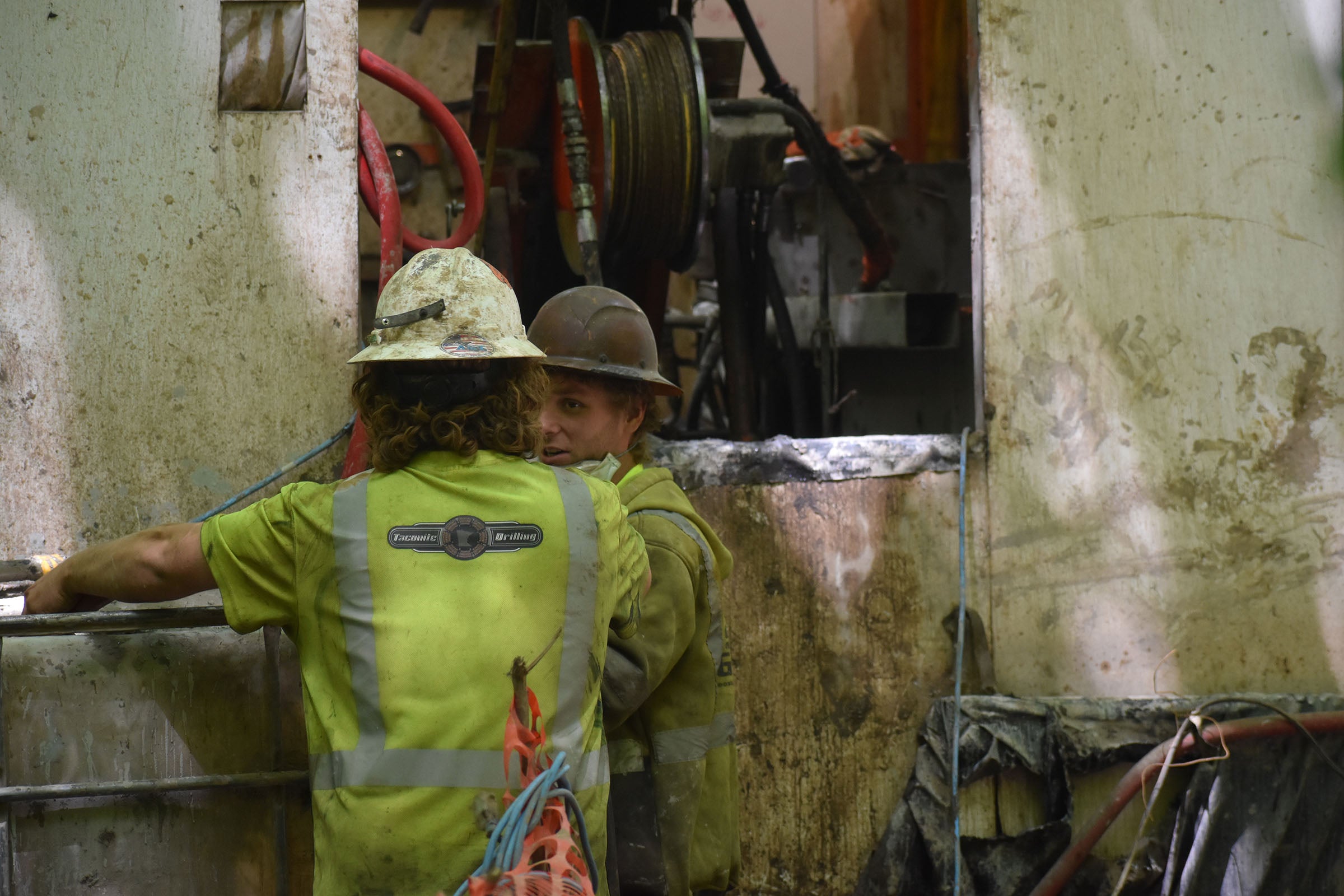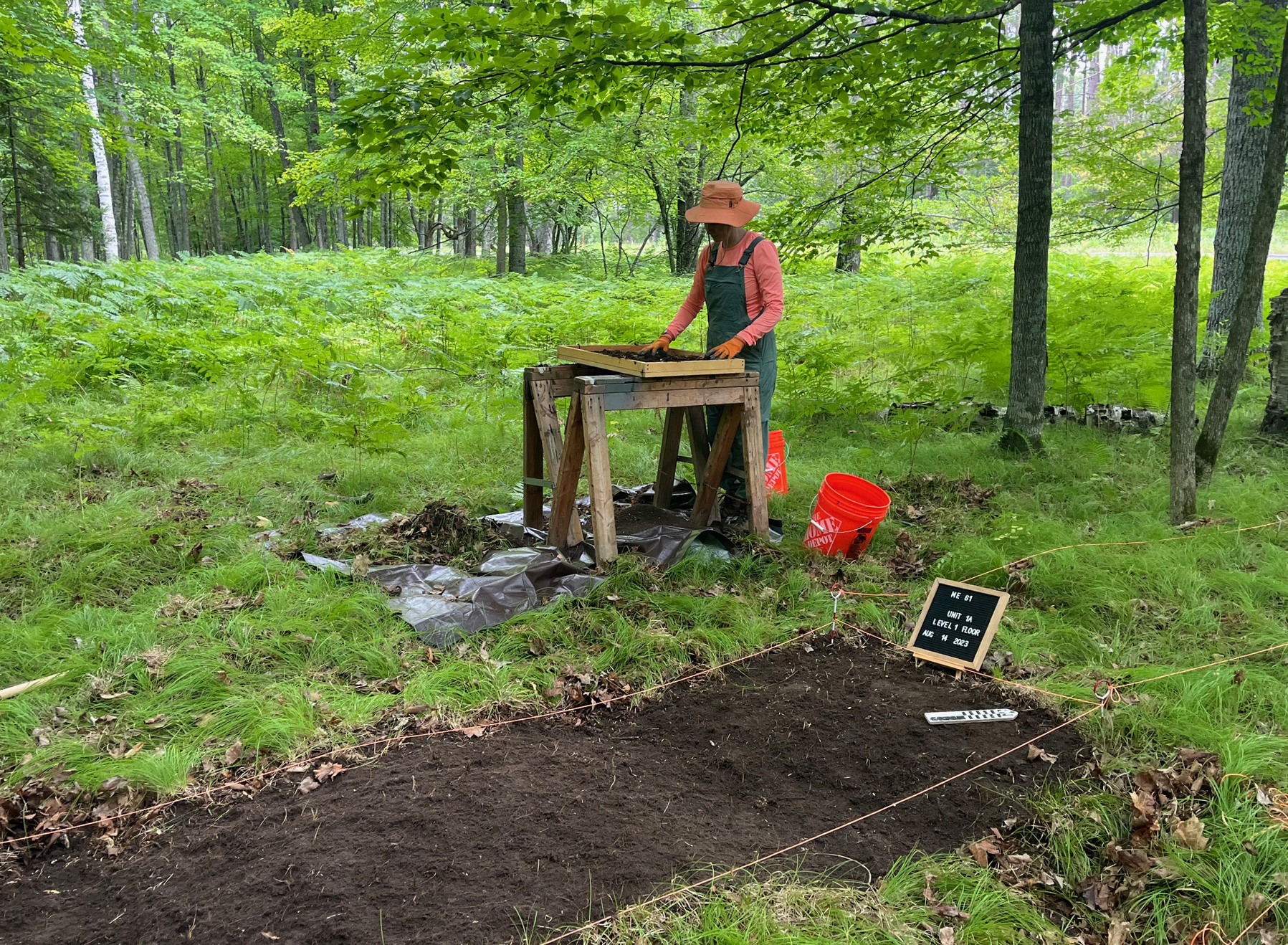A proposed gold and zinc mine in Michigan’s Upper Peninsula is drawing opposition from the Menominee Tribe of Indians.
Aquila Resources wants to run an 83-acre open pit mine near the Menominee River which drains into Green Bay.
The Menominee River is central to the heritage of the tribe of Native Americans that bears the same name. The tribe’s reservation is in northern Wisconsin. Guy Reiter, a Menominee member, said the river is key to its culture.
News with a little more humanity
WPR’s “Wisconsin Today” newsletter keeps you connected to the state you love without feeling overwhelmed. No paywall. No agenda. No corporate filter.
“Coincidentally, they call the river the Menominee River and where this mine is going to be is in Menominee County. We are the reason why they call it that. The Menominee Tribe that we are,” he said.
The tribe and other mine opponents are concerned about acid waste leaching into groundwater and eventually running into Green Bay.
Clifford Nelson, Aquila’s vice president for U.S. operations, said the mine site is located 150 feet below the level of the river and a cutoff wall will be built to offset the threat of contamination.
“What that does, it impedes the flow of water from the river into the pit. There’s going to be some water that seeps through the 150 feet of dirt or so. This impedes that to a very, very low rate. And that water will either be used, any water that does get through like I said, will be minimal, will either be used in the process or run through our water treatment plant,” Nelson said.
Aquila Resources officials said they hope to have a permit approved by the end of the year. The company’s website says there’s an estimated 1 million ounces of gold and a billion pounds of zinc at the site.
Nelson said it’s better to extract those resources from a mine approved by Michigan’s Department of Environmental Quality.
“This is a very rigid state for permitting and so would they not rather we have a mine in an economy, in a location that has very rigid permitting regulations and so it’s very controlled? Or have other companies running in other countries where they have very little to no environmental controls?” he said.
The Menominee River is home to sturgeon and fresh water mussels. It forms part of the border between Wisconsin and Michigan.
Al Gedicks, an emeritus sociology professor from the University of Wisconsin-La Crosse, said any activity on the river is a joint responsibility between both states.
“Any contamination at the headwaters of the Menominee River is going to affect people who depend upon the fishing industry or the tourism industry or for that matter the clean water downstream,” he said. “Not to mention the fact that we have a sovereign Indian tribe in Wisconsin whose ancestral grounds and archaeological sites are on the actual mine sites that have not been adequately investigated by the state of Wisconsin or the federal government.”
Gedicks said acid runoff is a real threat.
“If there’s a heavy rain, if there are a de-stabilization of the waste containment areas on site, there’s 54 million tons of waste that could be discharged into the Menominee River, which could be a major catastrophe,” he said.
Reiter said the mine site’s cultural significance is central to his people,
“It could be comparable to the Garden of Eden for Christians. You know it really is. It’s our beginning as a nation, as a people,” he said.
Reiter and other mine opponents are holding informational speaking sessions on the proposed mine. The next one is Wednesday, May 25, in Stevenson, Michigan.
Wisconsin Public Radio, © Copyright 2025, Board of Regents of the University of Wisconsin System and Wisconsin Educational Communications Board.







